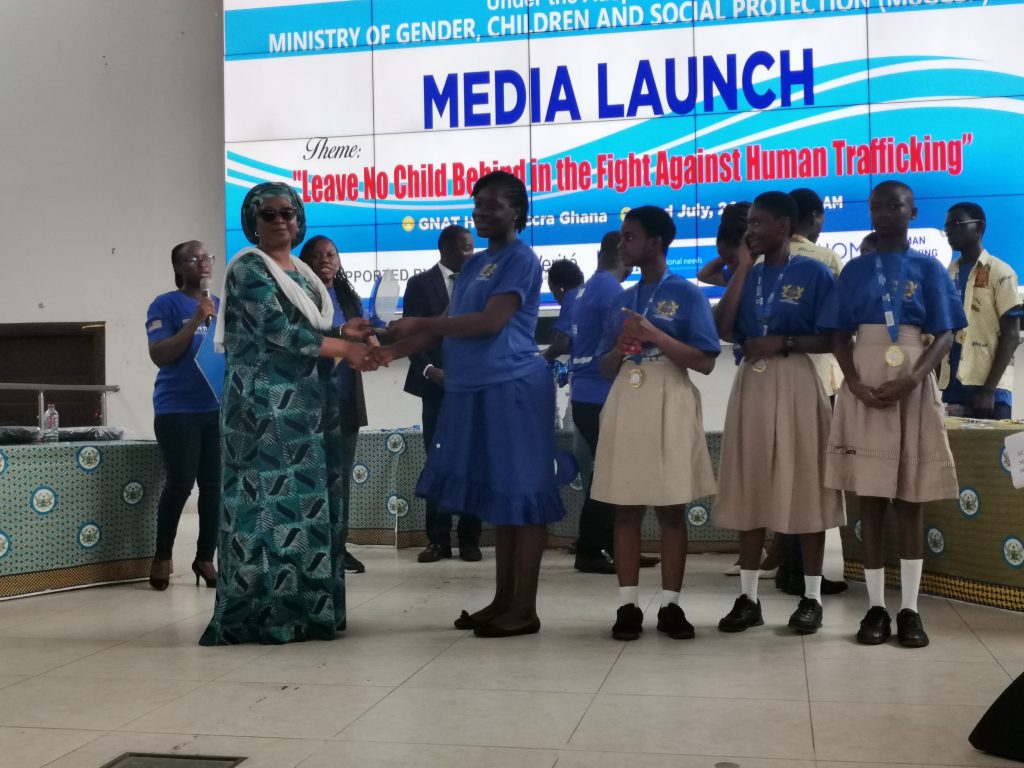By Priscilla Oye Ofori
Accra, July 23, GNA—The Tesano 1 Junior High School (JHS) and Accra Academy Senior High School (SHS) have won the Human Trafficking Inter-Schools Debate for the 1st Cycle Schools and 2nd Cycle Schools respectively on Tuesday in Accra.
The topic for the 1st Cycle Schools is: “Sport can be an avenue for human trafficking”, and the 2nd Cycle’s is: “If I desire to play professional football or any sporting activity, I am vulnerable to human trafficking”.
The Tesano JHS won against the Police Depot JHS with a score of 74.6 and Accra Academy SHS beat the Ordorgonnor SHS with 91 points.
The winning schools received a plaque and computer each in addition to 100 exercise books.
Each participant received a medal, a branded backpack containing 10 exercise books and a mathematical set.
Human Trafficking is the recruitment, transportation, transfer, harbouring or receipt of people through force, fraud or deception, with the aim of exploiting them for profit.
Dr Afisah Zakaria, Chief Director of the Gender Ministry, said the debate was an opportunity to raise awareness about the risks associated with sports and human trafficking.
She said regulation 7 of the Human Trafficking Legislative Instrument specifically obligated the Ministry to educate all classes of people as Ghana was a source, transit, and destination country.
Therefore, she said it was important for the Ministry to increase awareness and community sensitisation to address the menace.
“Our youth must know social media has a lot of influence and it is becoming more used than the traditional media,” Dr Zakaria stated.
The Chief Director called for collective efforts to eradicate human trafficking.
Mrs Jacquie Oyimer, Executive Committee Member, Coalition of Non-Governmental Organisations (NGOs) against Child Trafficking (CNACT), said the rising economic conditions could put many children at risk of being trafficked.

She said political interference and the inadequate allocation of financial and material resources from the Government to the agencies working at the forefront hindered the progress of ending human trafficking.
Mrs Oyimer called for continuous proactive enforcement of the laws to prevent child trafficking, prosecute perpetrators, and provide comprehensive support services for survivors.
“In the same way, political actors who seek to use their office to interfere in cases or facilitate trafficking in any form should be exposed and prosecuted without fear or favour,” she said.
GNA